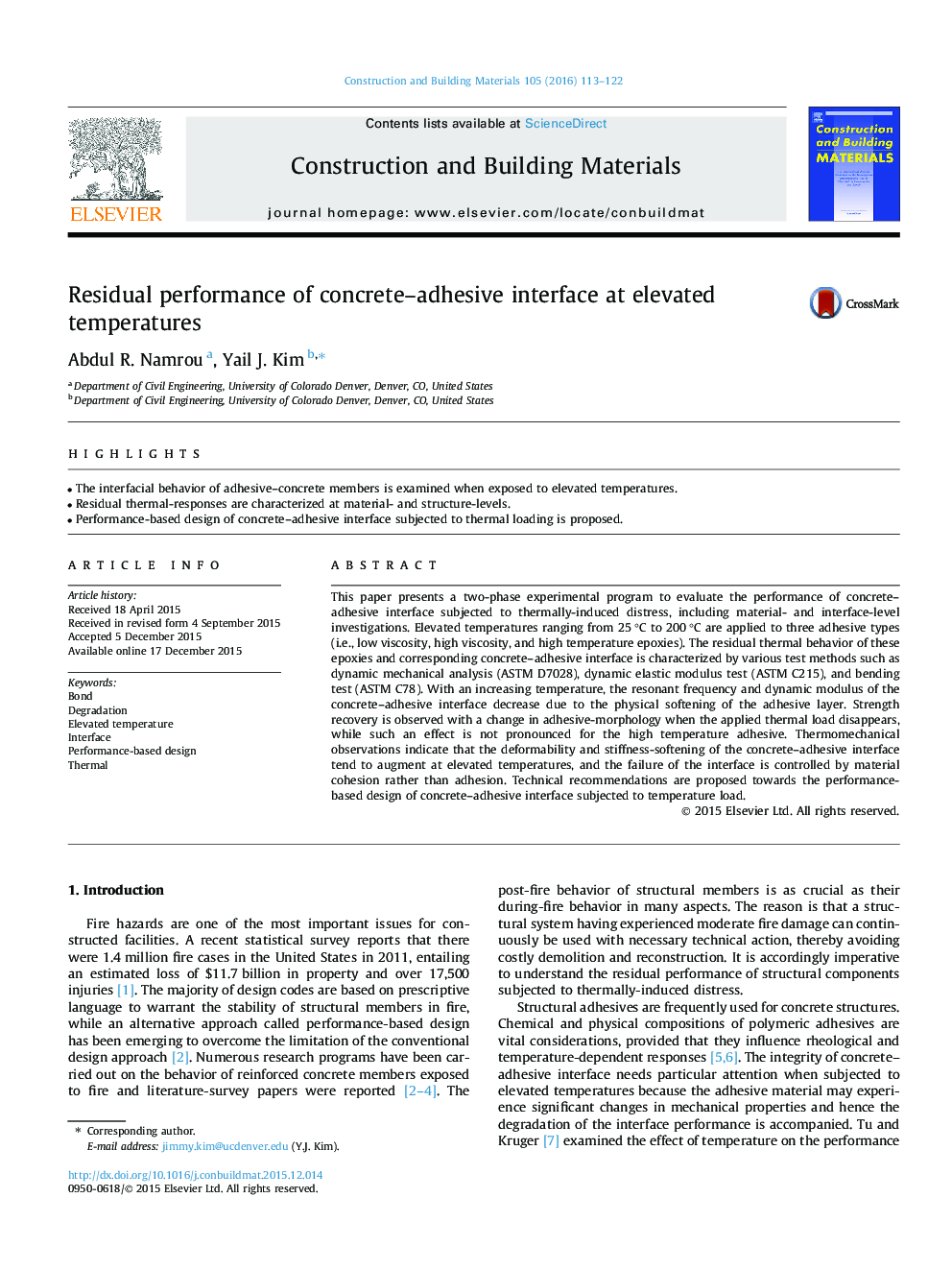| Article ID | Journal | Published Year | Pages | File Type |
|---|---|---|---|---|
| 6719446 | Construction and Building Materials | 2016 | 10 Pages |
Abstract
This paper presents a two-phase experimental program to evaluate the performance of concrete-adhesive interface subjected to thermally-induced distress, including material- and interface-level investigations. Elevated temperatures ranging from 25 °C to 200 °C are applied to three adhesive types (i.e., low viscosity, high viscosity, and high temperature epoxies). The residual thermal behavior of these epoxies and corresponding concrete-adhesive interface is characterized by various test methods such as dynamic mechanical analysis (ASTM D7028), dynamic elastic modulus test (ASTM C215), and bending test (ASTM C78). With an increasing temperature, the resonant frequency and dynamic modulus of the concrete-adhesive interface decrease due to the physical softening of the adhesive layer. Strength recovery is observed with a change in adhesive-morphology when the applied thermal load disappears, while such an effect is not pronounced for the high temperature adhesive. Thermomechanical observations indicate that the deformability and stiffness-softening of the concrete-adhesive interface tend to augment at elevated temperatures, and the failure of the interface is controlled by material cohesion rather than adhesion. Technical recommendations are proposed towards the performance-based design of concrete-adhesive interface subjected to temperature load.
Related Topics
Physical Sciences and Engineering
Engineering
Civil and Structural Engineering
Authors
Abdul R. Namrou, Yail J. Kim,
